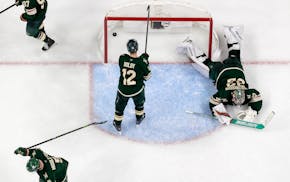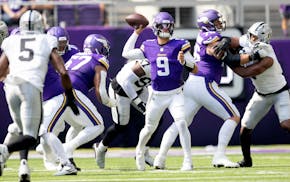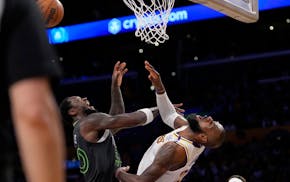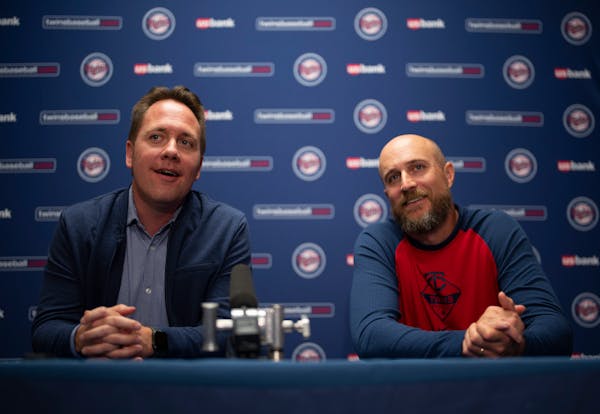Thursday, before the last home game of the Twins' season, team CEO Dave St. Peter noted that the current front office has been willing to "shake the tree.''
He's right. Because of the franchise's reputation, few expected them to compete for Yu Darvish or sign Josh Donaldson, and nobody expected them to land Carlos Correa.
With a deep roster, the Twins could stand pat this offseason and have a reasonable chance to contend in 2023. They should keep shaking.
If Correa leaves as a free agent, they should sign or trade for a true ace.
If Correa chooses to stay with the Twins … they should still sign or trade for an ace.
They will enter 2023 with two closer-quality relievers in Jhoan Duran and Jorge Lopez. They should have an abundance of quality position players. They will have about 10 reasonable candidates for the rotation.
But baseball will change in 2023. The Twins will have fewer opportunities to beat up the dregs of the American League Central. They will play more games against well-funded teams from the coasts. And if the ultimate goal of this front office is to indeed win a World Series, they're going to need someone who can win Games 1, 4 and possibly 7.
The trade for Sonny Gray gave them a high-quality starter who assumed the role of ace. He'd be even better as a No. 2 starter.
Think about the 2023 Twins with this rotation: 1. Justin Verlander or someone like him; 2. Gray; 3. Joe Ryan; 4. Tyler Mahle; 5. Bailey Ober; and injury replacements Josh Winder, Louie Varland, Simeon Woods Richardson, Cole Sands and possibly others.
Begging the Twins to spend big may seem like a waste of time, unless you pay more attention to reality than perception.
The current front office has signed the three largest free-agent contracts in franchise history, in Donaldson, Correa and Nelson Cruz. The Twins have traded for Gray, Mahle, Jake Odorizzi and Lopez, and are believed to have made an offer of more than $100 million to Darvish in 2018.
This March, the Twins were coming out of a work stoppage and had almost no pitching, and traded for Gray and signed Correa.
Remember, too, that the Twins' World Series champions relied on true aces: Frank Viola in 1987 and Jack Morris in 1991.
Aces are expensive because they can elevate your entire franchise.
Sign an ace, and some of your pitching prospects become trade fodder.
Trade for an ace, and you may get him for far less money than you would be forced to pay a premium free agent.
Between Cruz and Correa, the Twins have employed two widely respected players with connections throughout the majors. If Verlander asks about pitching in Minnesota, they can tell him about a player-friendly organization, a beautiful ballpark and reasonable summer temperatures.
Twins' management can rationally assume that many of their problems in 2022 will be solved with better health.
What they can't rationally assume is that better health will make them a dangerous playoff team, not without a true ace.
St. Peter offered a vote of confidence to President of Baseball Operations Derek Falvey, then said: "I know we'll go into the offseason and these guys — Derek and his team — will be very aggressive when they need to be, and they'll be patient when they need to be.
"They are willing to shake the tree. They've demonstrated that since they've been here. We were criticized for years for being too passive. This group has never been passive. Look at their track record."
Falvey and manager Rocco Baldelli have been in charge together for four years. They both arrived — Falvey in October 2016, Baldelli in October 2018 — to a franchise struggling. They have won two division titles together and 53% of their games.
In the Twins' first four full seasons under GM Andy MacPhail and manager Tom Kelly, the Twins won one division title and 51% of their games
They did have an ace, in Viola. He pitched them to a World Series title.

Souhan: Wild lose an admirable one, and it might become a costly one

Souhan: Vikings picked a good year to not need to pick a quarterback
Souhan: What should the Vikings do with the No. 24 pick - keep it or trade it?
Souhan: Wild scorers look slick but lack grease in Game 1


